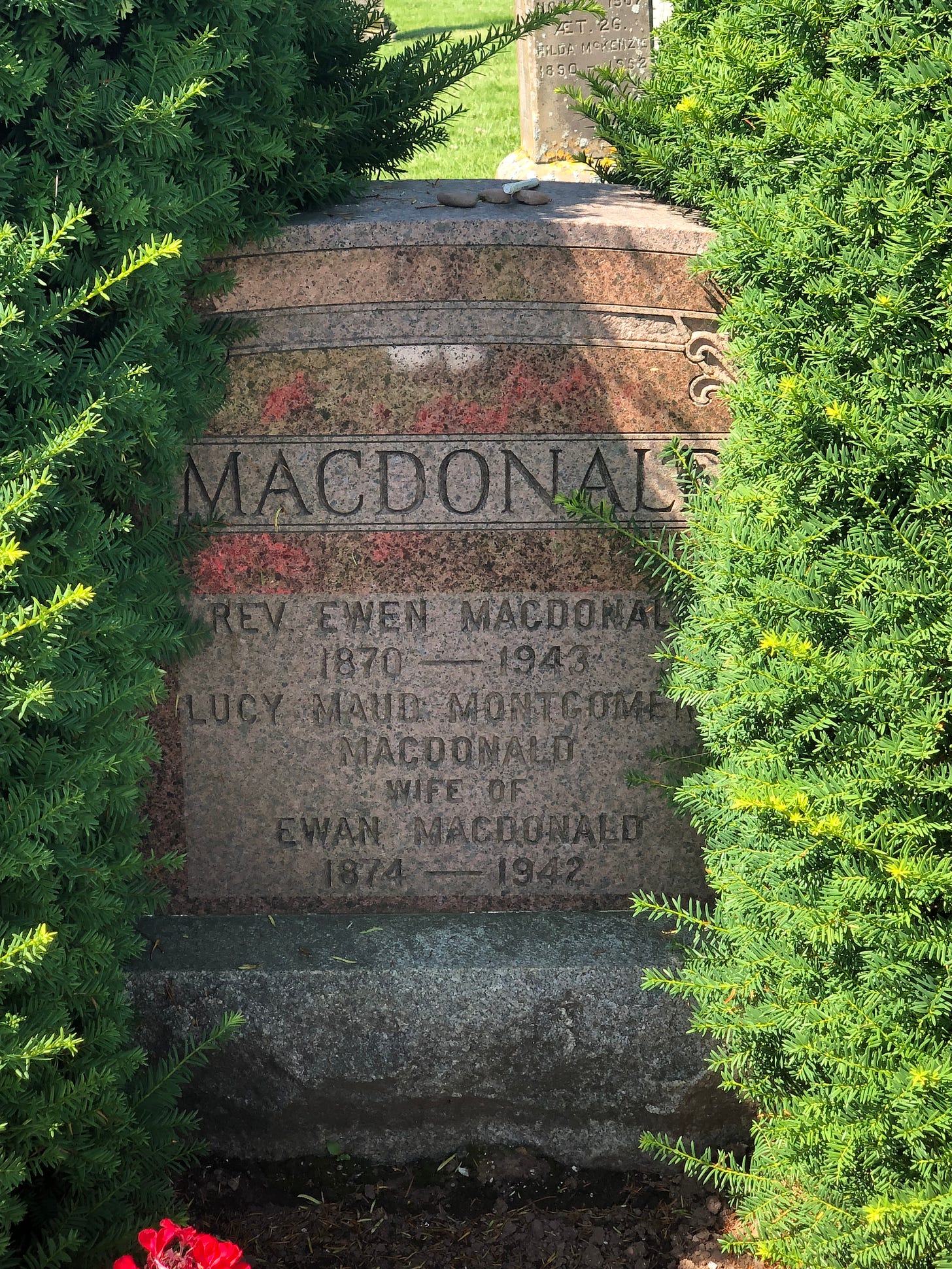“I have dreamed
of accomplishment.
I have fed
ambition.
I have traded
nights of sleep
for a length of work.”
Those are the opening lines of Mary Oliver’s poem “The Orchard.” I think she was discussing mortality — the author was in her 70s when it was published — but Mary Oliver wrote about a lot of things. It’s also a great poem about writing.
Over the last six months I’ve been working on a few challenging projects, the kind that take so long to complete, you question why you’re doing them: “Will this ever be finished?” “What if I’m wrong to pursue this so doggedly?” “Will anyone even care?”
An insight that has come to me lately is that perhaps it doesn’t really matter if I finish them.
I found a compilation of Oliver’s poems in Charlottetown’s extraordinary used bookstore, The Bookman. I had come to PEI to see my old friend Louise Polland, a former neighbour who taught me to read through the books of Lucy Maud Montgomery, beginning with Anne of Green Gables.
I’m at a point now where a lot of people who are important to me are nearing the end of their lives. I asked Louise, who is in her seventies, “Did you do all the work you wanted to?” Louise is a writer too, who published a book for children, The Cat with the Bad Hair.
She shook her head. “No.”
Then I asked, “Do you think it matters?”
Again, she replied, “No.”
I think that’s about right.
When I was younger, I would have given up everything I could to my writing. I don’t mean just to be established professionally — working late, spending my own birthday in the parking lot of a suburban newsroom. I mean, too, the time and energy I gave to becoming “good.” I read writers who challenged me, aimed for a higher audience than my work needed to be pitched to. (I’m one of those editors now who tells emerging writers, “stop writing everything like you’re auditioning for The New Yorker.”)
What that means is that there are a lot of individual days from my 20s and 30s I don’t really remember. Much of my “writing” career has been spent not just writing, but on revision — ten or eleven drafts, just for the sake of a good article. On mascara.
Now that I am old enough to see my career spreading out both ahead and behind me — a little more time behind me, I think, than however many years I have left to work — I’ve been thinking about ambition and what it adds up to. I don’t ask whether it was worth becoming a writer because the things I learned on that path are what enabled me to see this now. I mean to ask whether it was worth giving up the life or the lives I could have lived instead:
I could have tried harder to have a family.
I could have traveled more, not to cities with world-class art museums, but to sitting on a beach and watching the ocean.
I could have been happy with myself in spite of the days when it felt like I had no looks or talent.
I could have experienced feeling the sun on my face more often. That, because I was outside, not in an office with air conditioning that makes you wear winter clothing year-round.
How many summers have I missed? How many days have I let slip by in the pursuit of something ahead of me?
So much of what drives us, or drove me anyway, was the pressure to create something that would live on beyond me. I don’t know who put that pressure on me. Maybe it’s a uniquely morbid aspect to Canadian literature. But it’s a false benchmark.

While I was in PEI, I visited the grave of L.M. Montgomery, author of the Green Gables series. Canada’s most famous writer of all time is buried, in the town she came from, under her husband’s name. Both of their graves are overgrown with scrub.
While I was standing there, a man in a Z.Z. Top shirt came by with a couple of people he was touring. “This would never have happened in my day,” he said sadly. He explained that he used to be its gardener.
Everything grows on and grows over.
So, why bother? Why write anything?
Write because it pleases you. Write because an hour spent writing feels better than a day spent without any writing in it. That’s the best reason I can come up with, a few weeks before I turn 50.
Write because it moves you, because it can ease your spirit when you need it to. Write because it’s the only thing that will every truly make you feel immortal.
But don’t write for posterity, to try to win awards, or because you want to impress someone. By the time you’ve achieved what you were trying to do, the world may have decided it wants something else anyway.
And success may come before you need it to.
As Mary Oliver says, “the ripeness of the apple is its downfall.”



